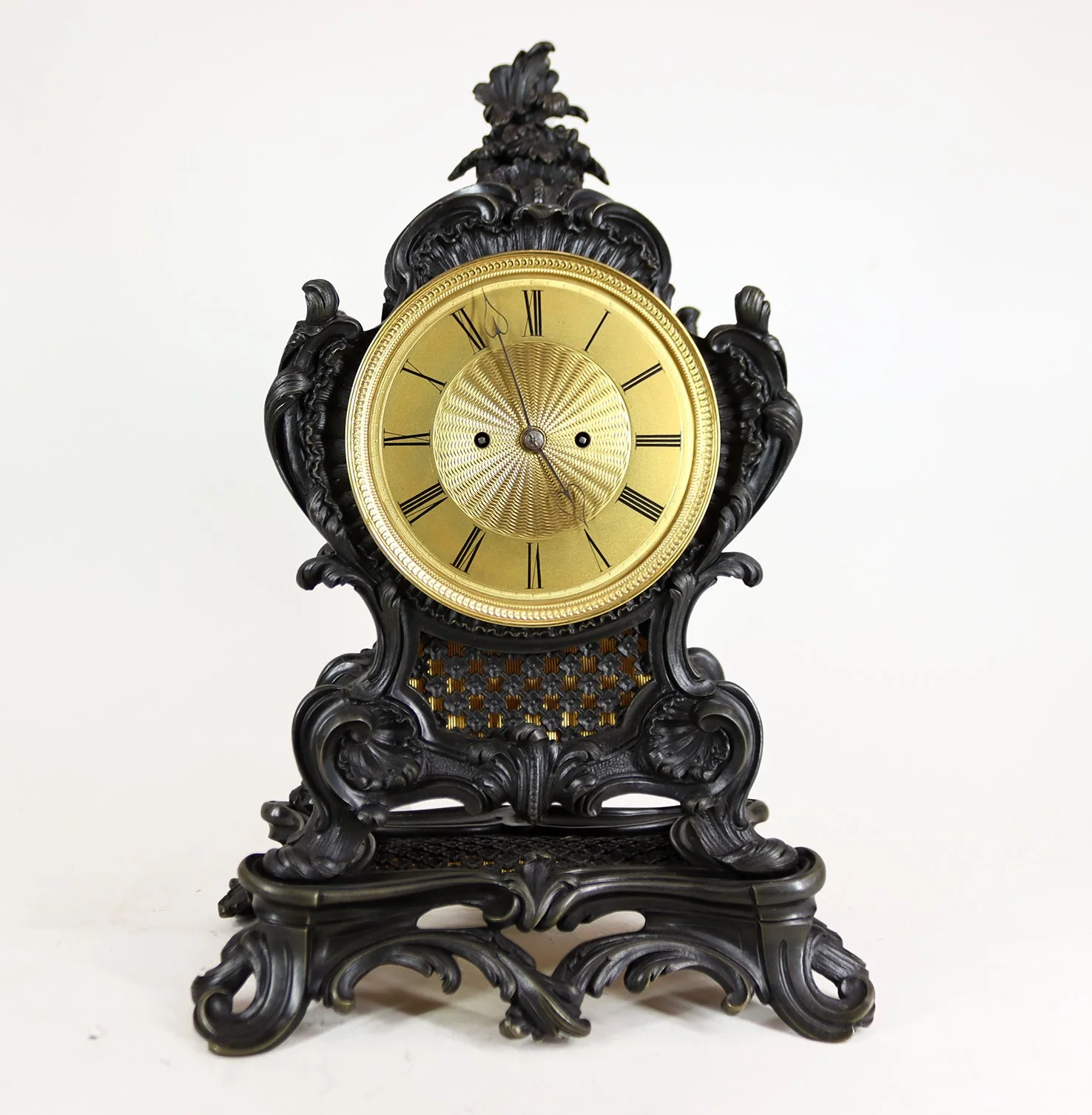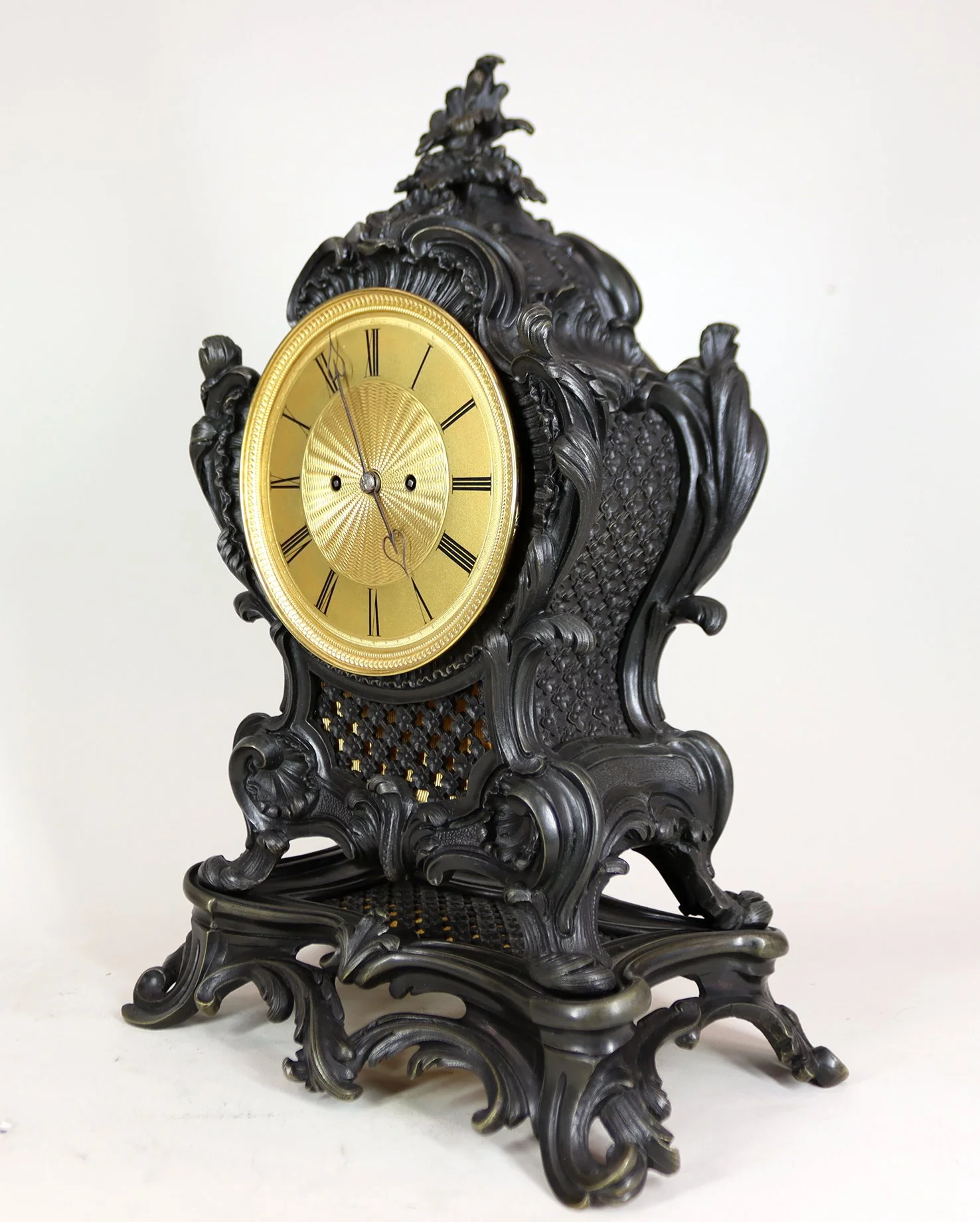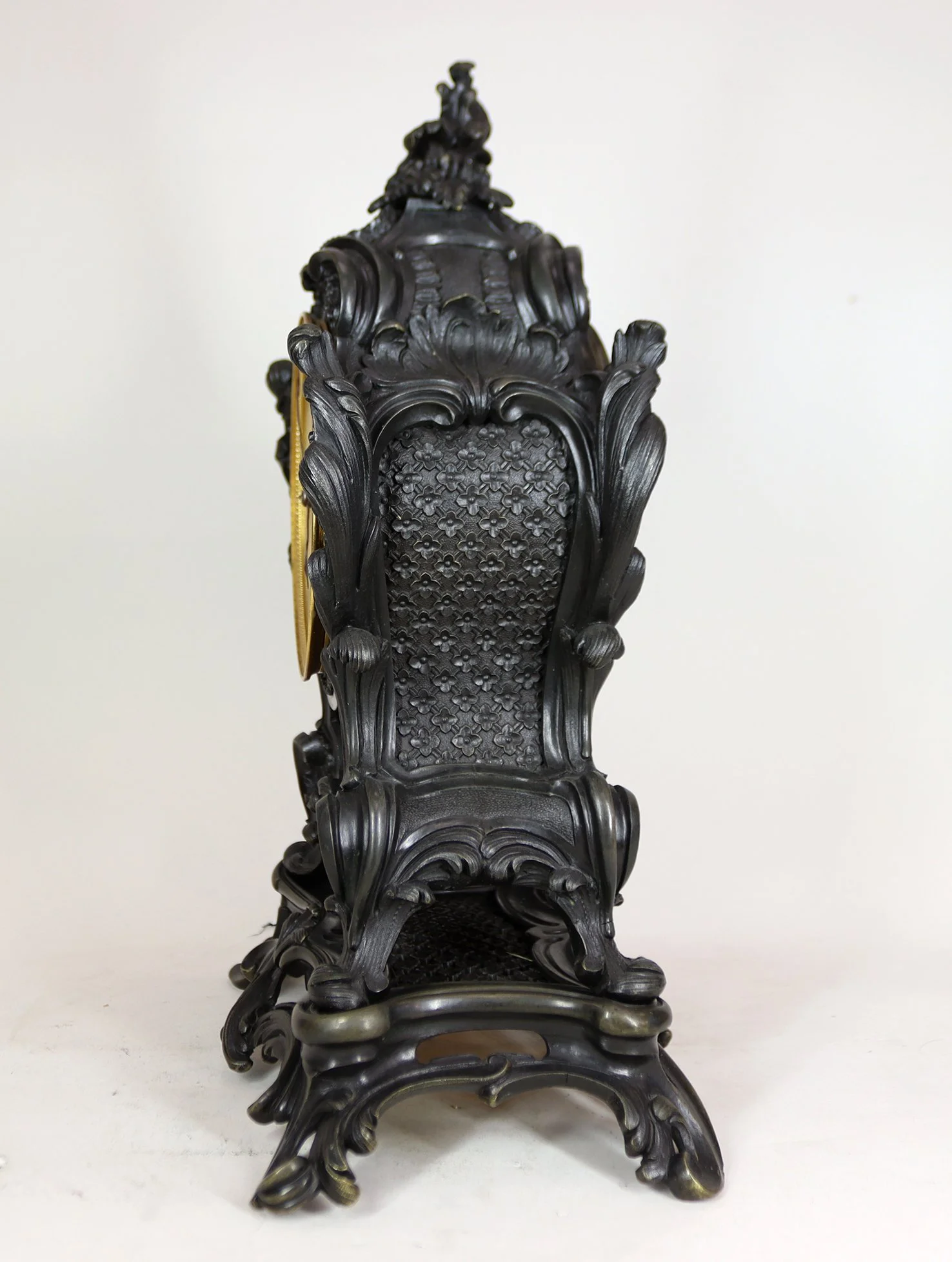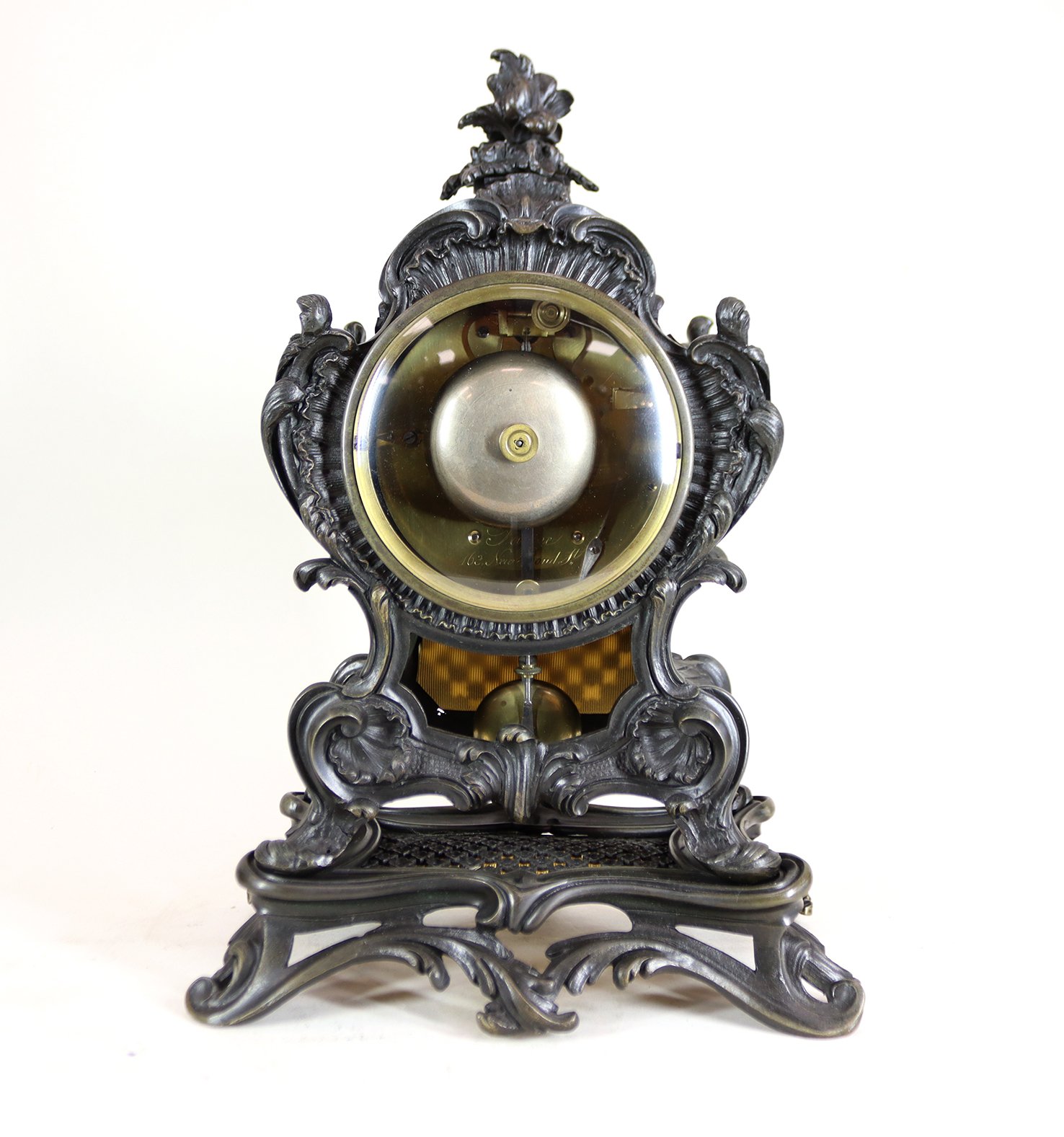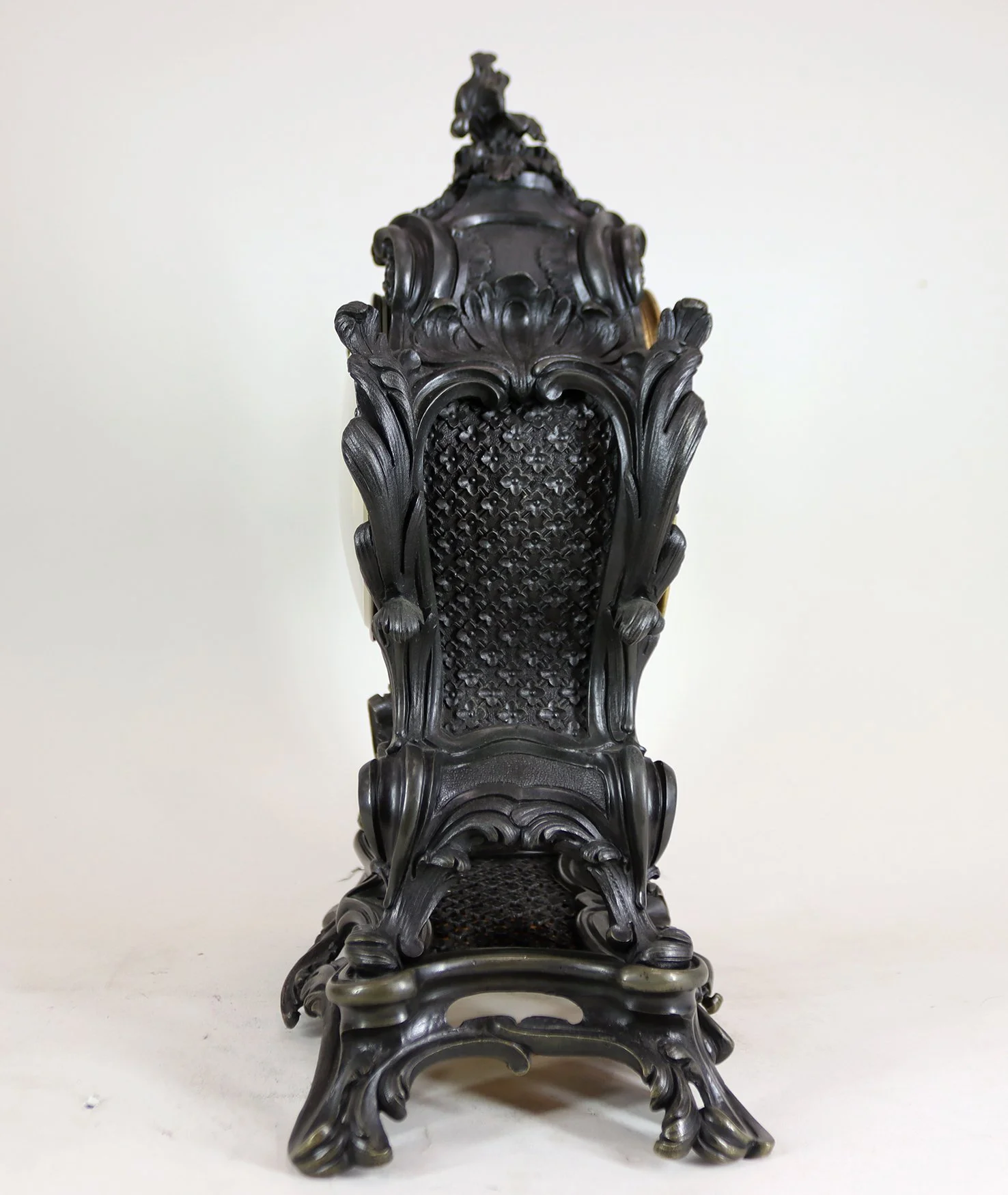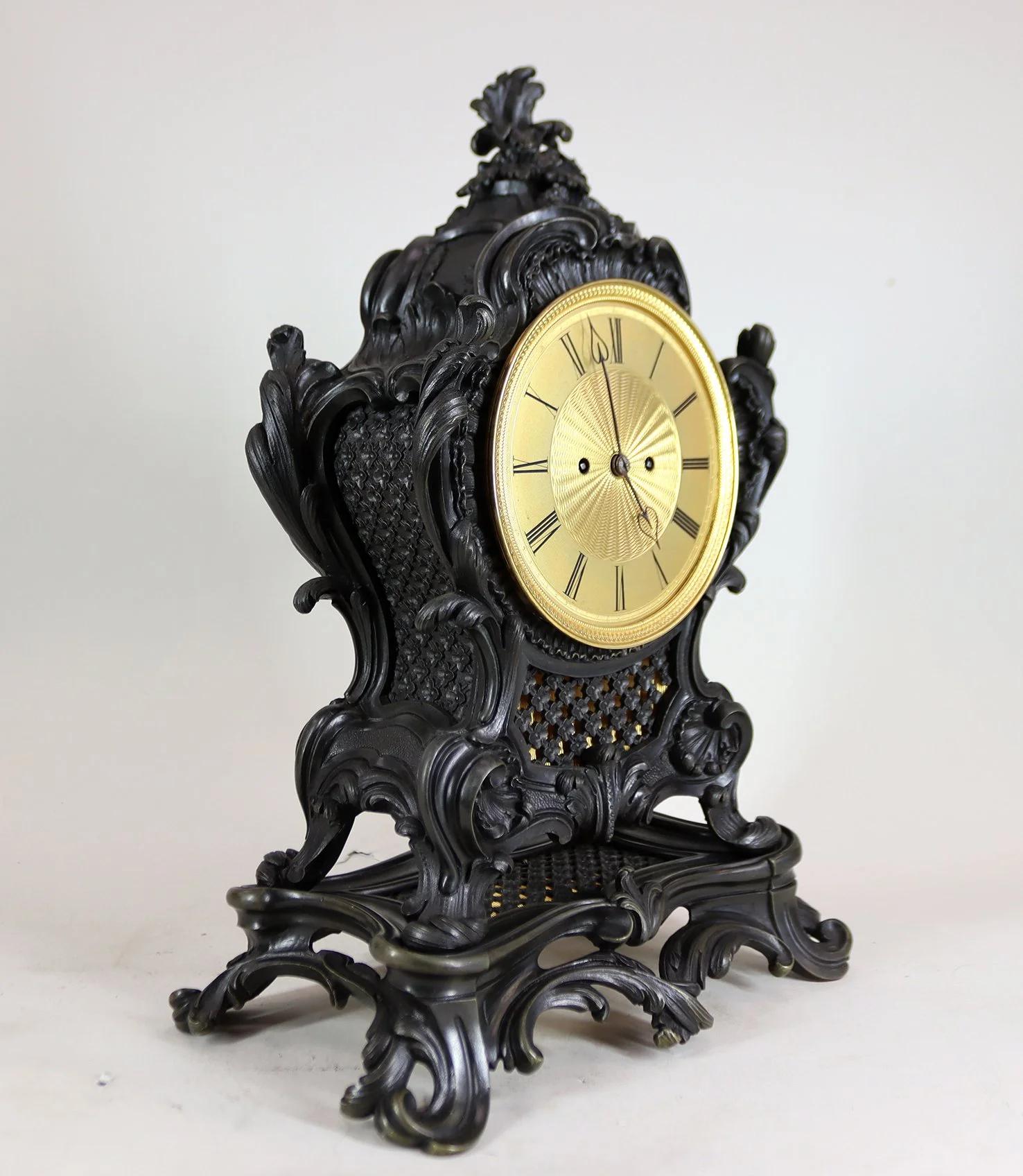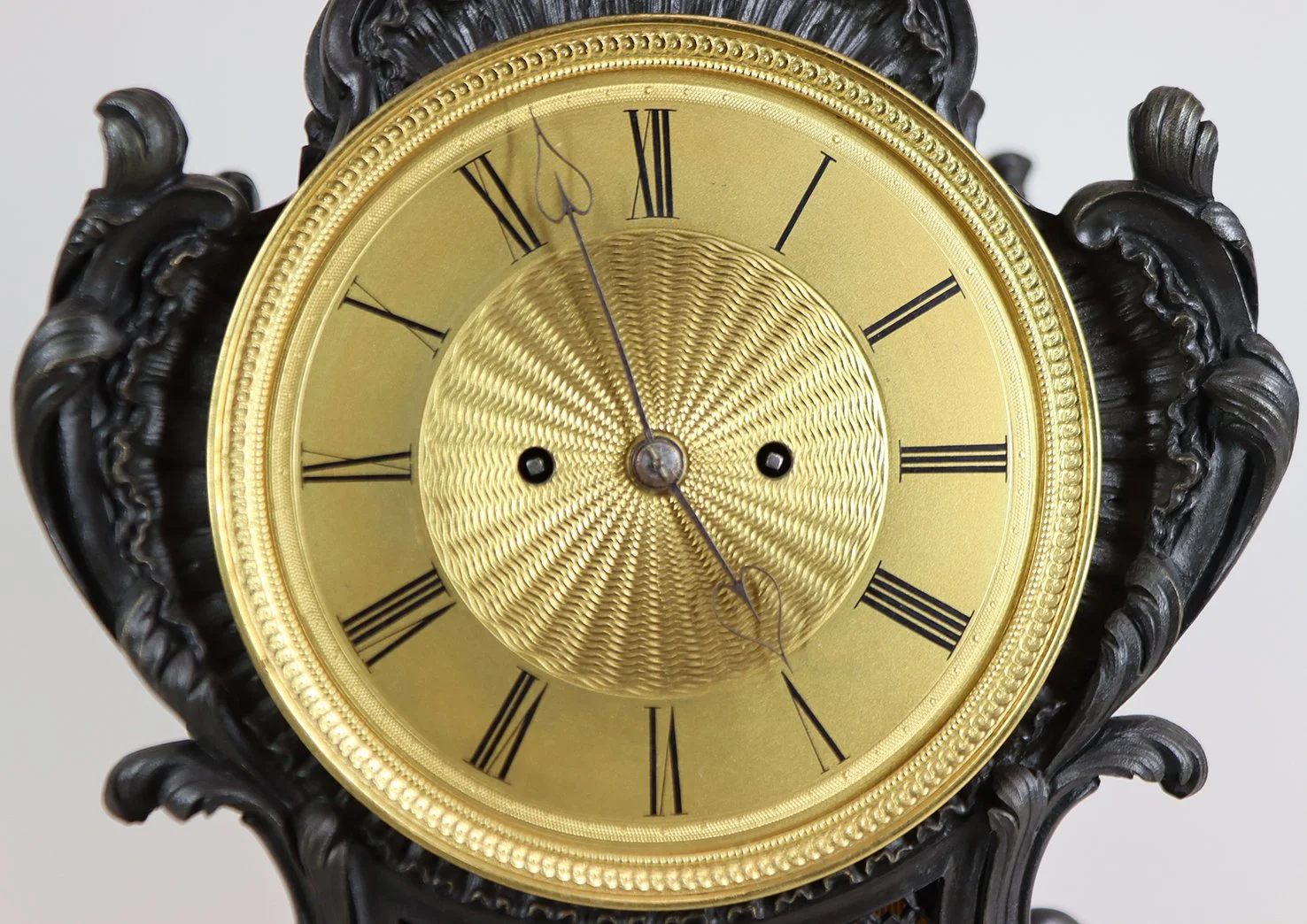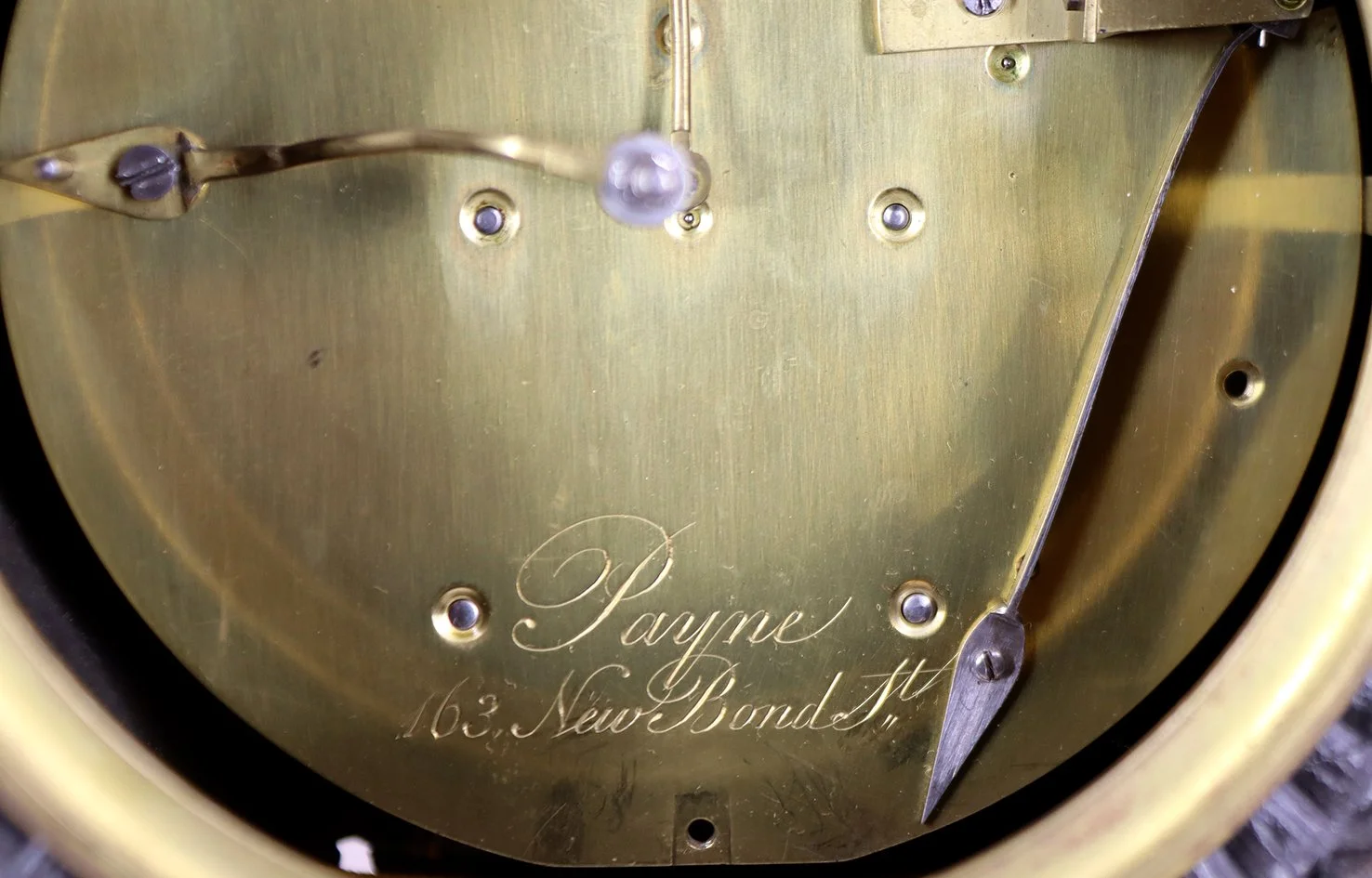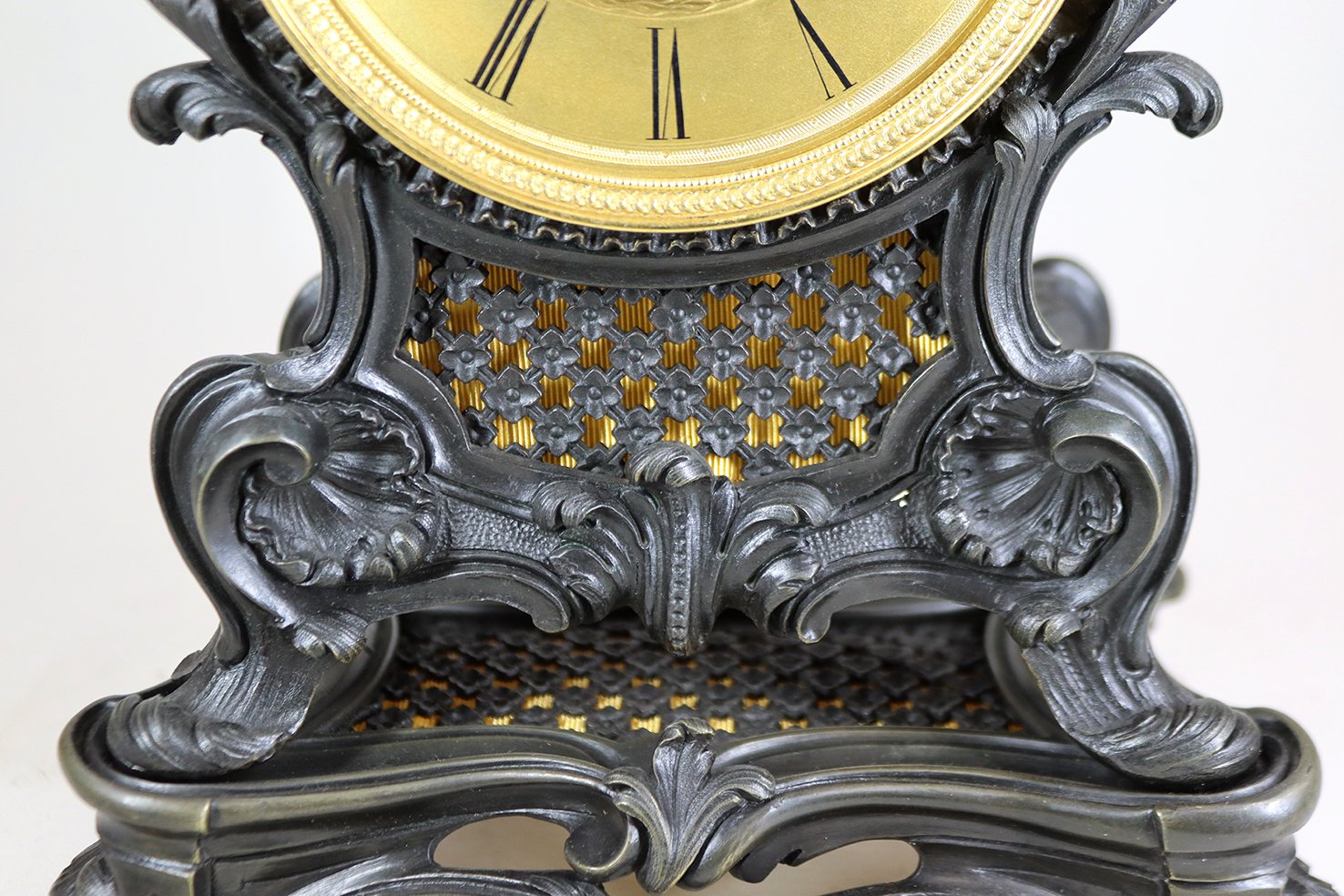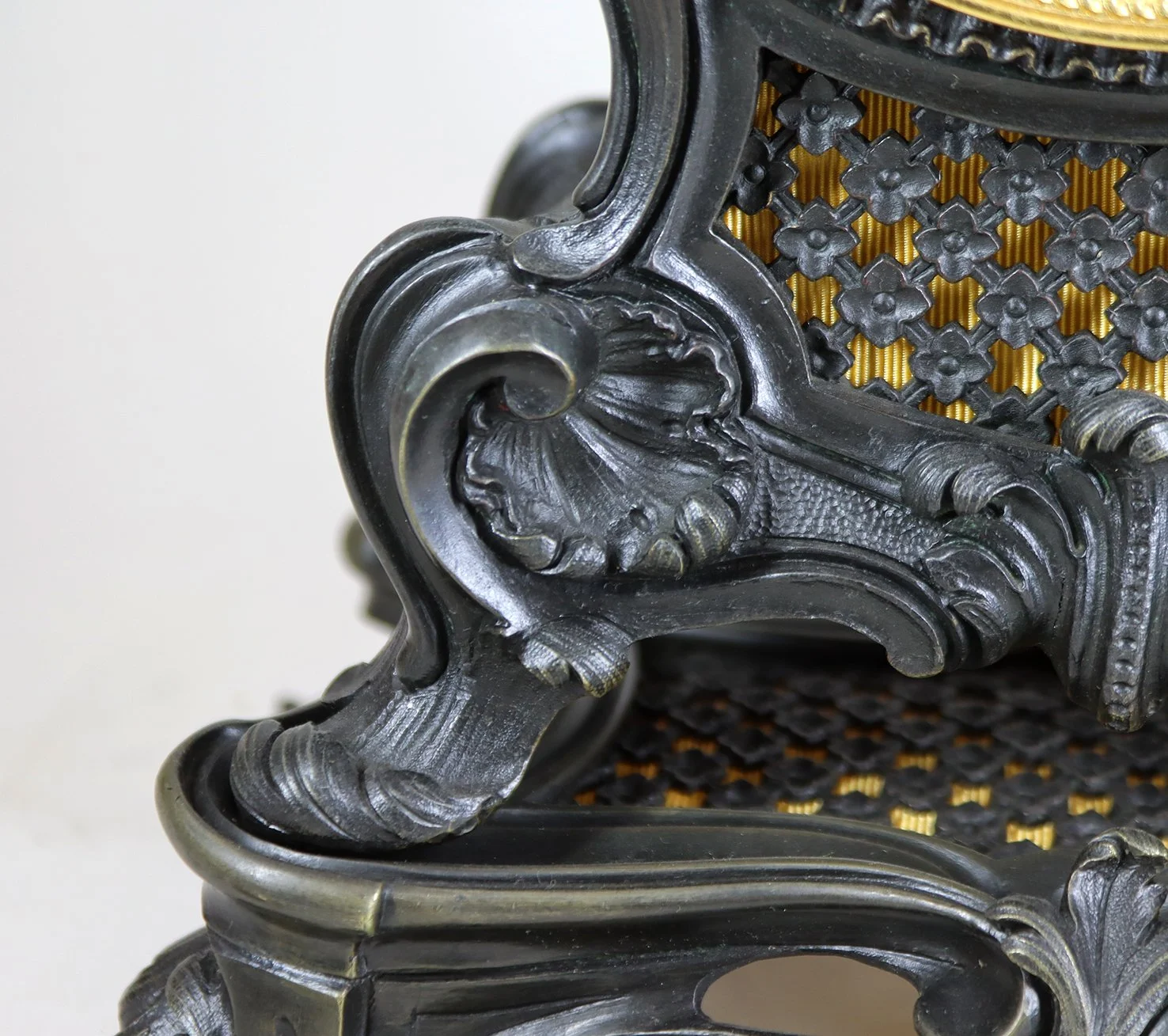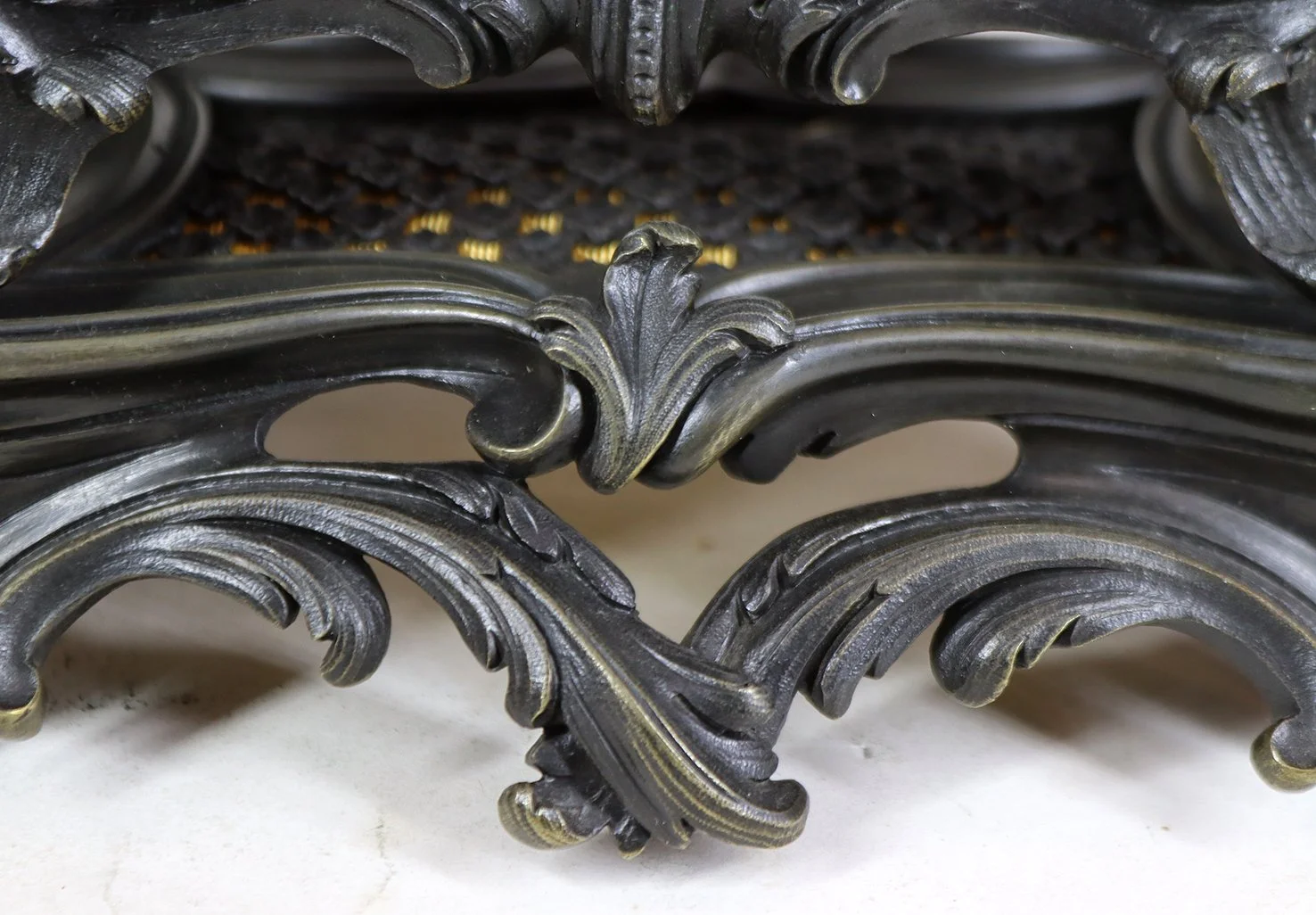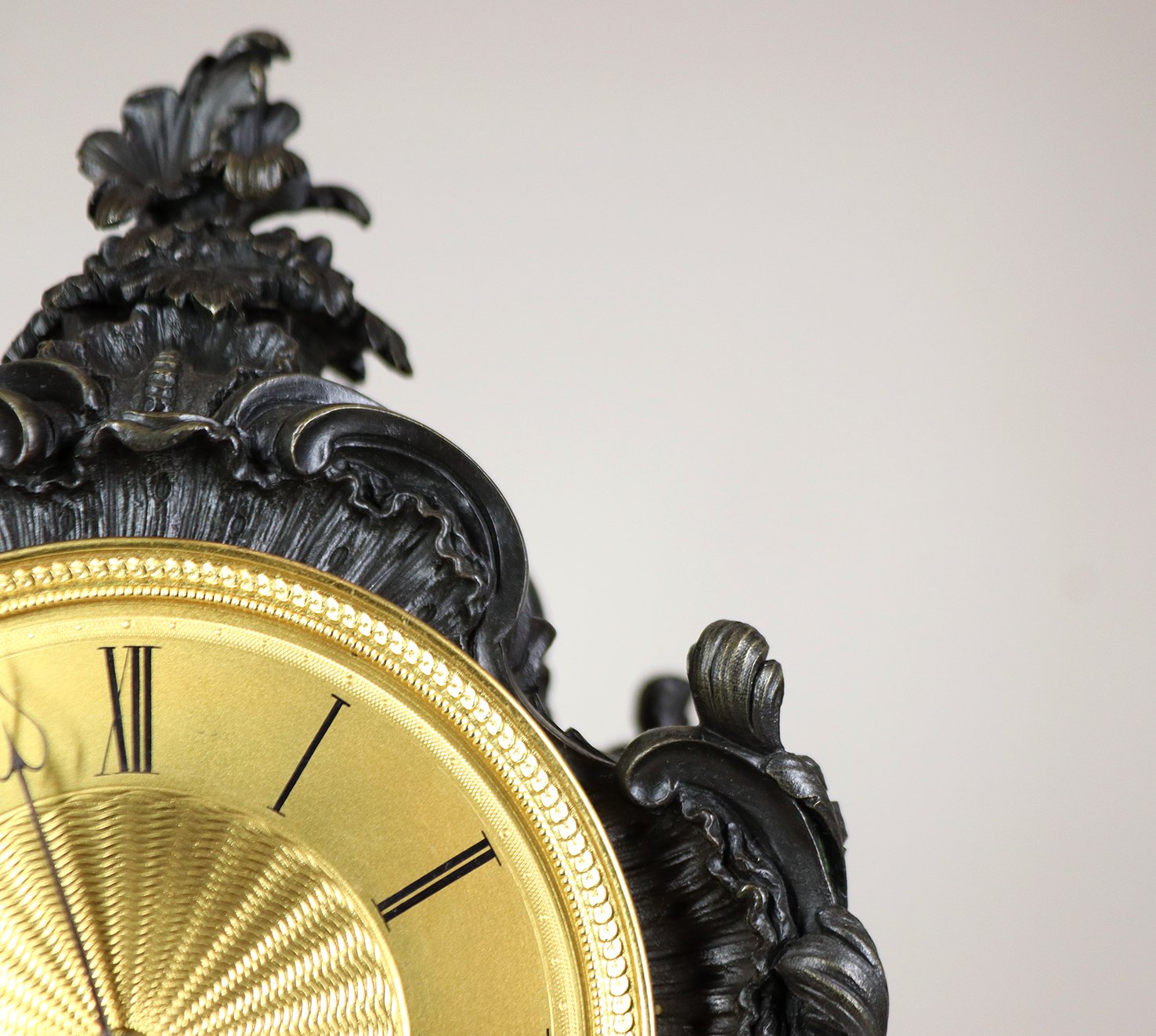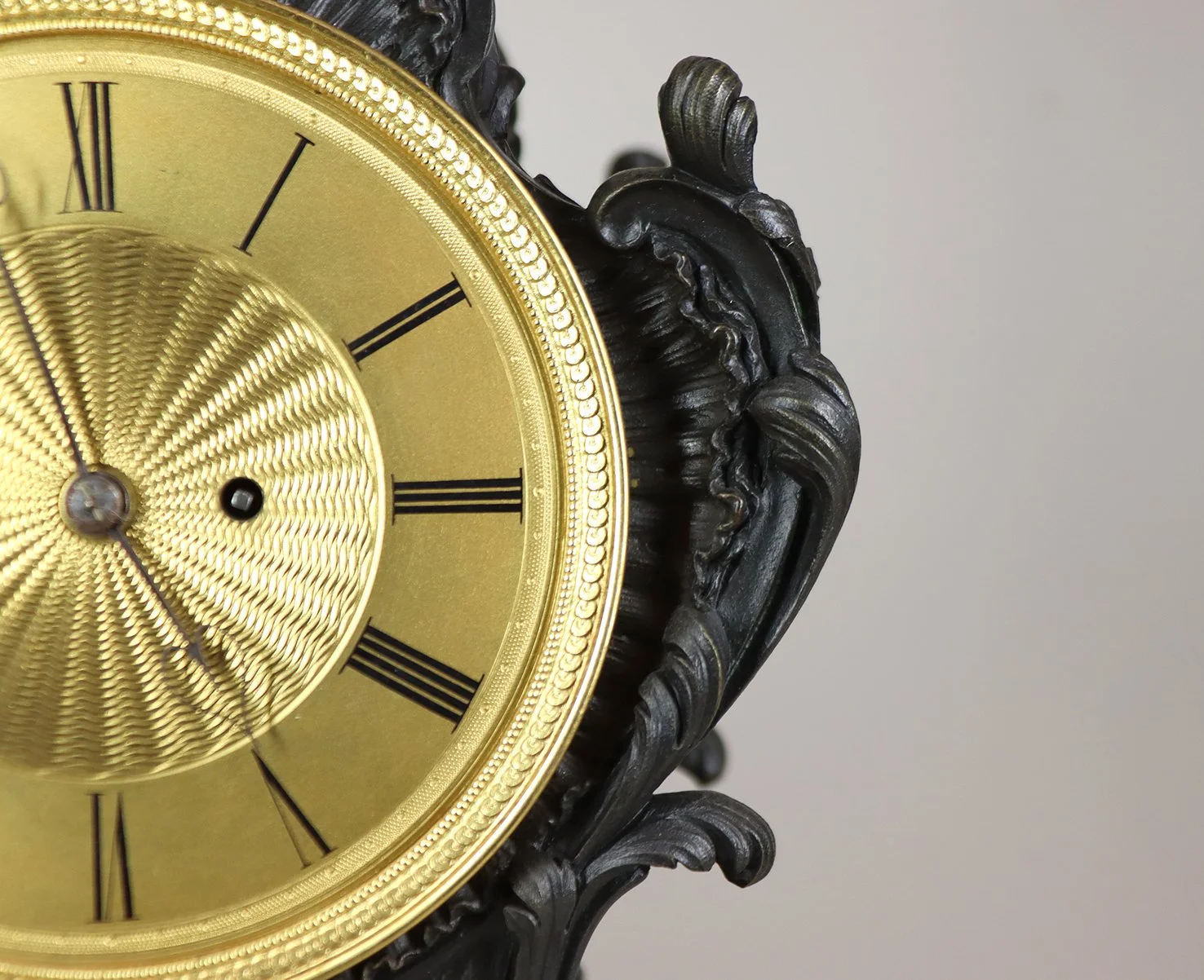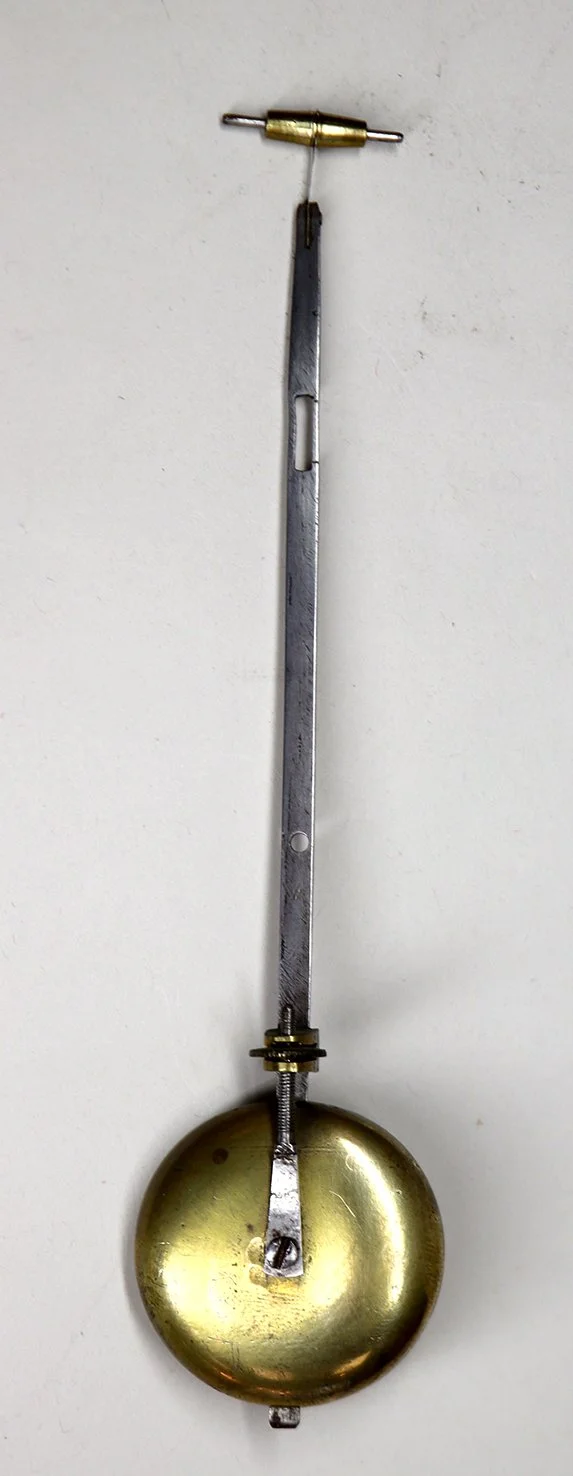 Image 1 of 15
Image 1 of 15

 Image 2 of 15
Image 2 of 15

 Image 3 of 15
Image 3 of 15

 Image 4 of 15
Image 4 of 15

 Image 5 of 15
Image 5 of 15

 Image 6 of 15
Image 6 of 15

 Image 7 of 15
Image 7 of 15

 Image 8 of 15
Image 8 of 15

 Image 9 of 15
Image 9 of 15

 Image 10 of 15
Image 10 of 15

 Image 11 of 15
Image 11 of 15

 Image 12 of 15
Image 12 of 15

 Image 13 of 15
Image 13 of 15

 Image 14 of 15
Image 14 of 15

 Image 15 of 15
Image 15 of 15
















A Twin Fusee Bracket Clock By Dent
A striking two train bracket clock of exceptional quality by one of the great nineteenth century makers. The eight day twin fusee movement strikes on a blued steel gong behind a silvered arabic dial, signed Dent and numbered 58242 on both th dial and the back plate. Housed in a solid mahogany case with brass mounts and a gadrooned pergoda top surmounted by an acorn finial, and supported by bun feet. The sides ar pierced with attractive fish scale sound vents lined with dark blue velvet.
The movement and case are both of remarkable quality, as you would expect from a clock made by Dent. The history of Dent & Co. spans three centuries of precision watch and clock making in Great Britain. Established in 1814 by Edward J. Dent, the company embraced the Victorian fervour for technological innovation and created precision chronometers to navigate the Royal Navy and guide some of the most intrepid explorers on their voyages. The British Empire was in full expansion and its maritime tradition had produced some remarkable technological breakthroughs from the late 18th century. Propelling the impetus of Britain’s primacy, Dent proved a key player in Victorian horological history manufacturing the Standard Clock at the Royal Observatory, Greenwich which was to keep “Greenwich Mean Time” the time to which all others in the Empire were referred (better known today as G.M.T.) and continued to do so until replaced by an electronic clock in 1946. Dent also made probably the most famous clock in the world - the Great Clock for the Houses of Parliament, familiarly known as Big Ben.
Dent’s reputation soared and their chronometers accompanied some of the century's most influential and colourful explorers. Dent chronometer no. 633 was taken aboard the H.M.S. Beagle in 1831 to accompany Charles Darwin on the voyage that lead to his revolutionary publication “The Origin of the Species” - his groundbreaking theory of evolution. Two decades later, David Livingstone purchased Dent chronometer no. 1800 for his African explorations and in 1890, the explorer H.M. Stanley was moved to write to Dent that “the Chronometers supplied by you, and which were taken across Africa in my last Expedition, proved a very great service to me and were in every way thoroughly satisfactory and reliable”.
Dent’s flair for exquisitely wrought domestic clocks and watches afforded the company a Royal Warrant as the official watch and clockmaker to Her Majesty Queen Victoria and HRH Albert Prince of Wales in 1841, a warrant that would be renewed through to George V’s reign. Russian emperors Tsar Alexander III and Tsar Nicolas II and the Japanese Emperor Mejii also issued Dent with royal warrants.
The Dent trademark, the triangle, was instituted in 1876 in response to reports of inferior imitators, and appears on the back of all watches and clocks from that time on, as the sign of a genuine Dent timepiece. Throughout the 20th century Dent continued to make and supply marine chronometers, watches and compasses for the Royal Navy and was supplier to the Royal Air Force during the Second World war, and supplied decorative and architectural clocks for the domestic and civil markets. Dent maintained the Royal Warrants until the mid 20th century, and continued to make exquisite clocks throughout this period.
This clock with the distinctive trade mark is dated after 1876 we believe it was manufactured in 1900.
48cm H x 28cm W x 18cm D
This clock coms with our two year guarante
A striking two train bracket clock of exceptional quality by one of the great nineteenth century makers. The eight day twin fusee movement strikes on a blued steel gong behind a silvered arabic dial, signed Dent and numbered 58242 on both th dial and the back plate. Housed in a solid mahogany case with brass mounts and a gadrooned pergoda top surmounted by an acorn finial, and supported by bun feet. The sides ar pierced with attractive fish scale sound vents lined with dark blue velvet.
The movement and case are both of remarkable quality, as you would expect from a clock made by Dent. The history of Dent & Co. spans three centuries of precision watch and clock making in Great Britain. Established in 1814 by Edward J. Dent, the company embraced the Victorian fervour for technological innovation and created precision chronometers to navigate the Royal Navy and guide some of the most intrepid explorers on their voyages. The British Empire was in full expansion and its maritime tradition had produced some remarkable technological breakthroughs from the late 18th century. Propelling the impetus of Britain’s primacy, Dent proved a key player in Victorian horological history manufacturing the Standard Clock at the Royal Observatory, Greenwich which was to keep “Greenwich Mean Time” the time to which all others in the Empire were referred (better known today as G.M.T.) and continued to do so until replaced by an electronic clock in 1946. Dent also made probably the most famous clock in the world - the Great Clock for the Houses of Parliament, familiarly known as Big Ben.
Dent’s reputation soared and their chronometers accompanied some of the century's most influential and colourful explorers. Dent chronometer no. 633 was taken aboard the H.M.S. Beagle in 1831 to accompany Charles Darwin on the voyage that lead to his revolutionary publication “The Origin of the Species” - his groundbreaking theory of evolution. Two decades later, David Livingstone purchased Dent chronometer no. 1800 for his African explorations and in 1890, the explorer H.M. Stanley was moved to write to Dent that “the Chronometers supplied by you, and which were taken across Africa in my last Expedition, proved a very great service to me and were in every way thoroughly satisfactory and reliable”.
Dent’s flair for exquisitely wrought domestic clocks and watches afforded the company a Royal Warrant as the official watch and clockmaker to Her Majesty Queen Victoria and HRH Albert Prince of Wales in 1841, a warrant that would be renewed through to George V’s reign. Russian emperors Tsar Alexander III and Tsar Nicolas II and the Japanese Emperor Mejii also issued Dent with royal warrants.
The Dent trademark, the triangle, was instituted in 1876 in response to reports of inferior imitators, and appears on the back of all watches and clocks from that time on, as the sign of a genuine Dent timepiece. Throughout the 20th century Dent continued to make and supply marine chronometers, watches and compasses for the Royal Navy and was supplier to the Royal Air Force during the Second World war, and supplied decorative and architectural clocks for the domestic and civil markets. Dent maintained the Royal Warrants until the mid 20th century, and continued to make exquisite clocks throughout this period.
This clock with the distinctive trade mark is dated after 1876 we believe it was manufactured in 1900.
48cm H x 28cm W x 18cm D
This clock coms with our two year guarante
